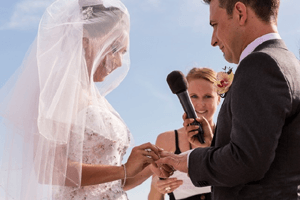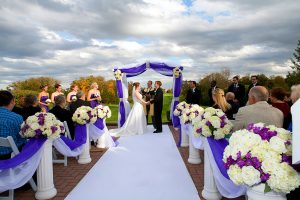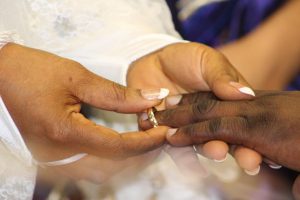Weddings cost a lot of money. With all of that cost can come some sticky situations, both for the bride and the groom, their families, and even the wedding guests. Sort it all out with this guide to wedding money etiquette.
Old fashioned wedding etiquette said that the bride’s father paid for almost everything involved in his daughter’s wedding.
Traditionally the groom paid for the bride’s bouquet, a gift of bridal jewelry, and the honeymoon. The groom’s parents picked up the tab for the rehearsal dinner, but the rest was all the responsibility of dear old Dad. The first piece of modern wedding money etiquette is that these old rules no longer apply. While it is true that a lot of fathers still pay for most of the wedding expenses, it is just as common for the costs to be split between the bride’s family, the groom’s family, and the happy couple.
These days, the etiquette is that the families of the bride and groom contribute what they want to and can afford. The bride can either plan her wedding within that budget or she and the groom can choose to contribute their own funds towards a more lavish affair. It is not considered acceptable for the bride to blackmail her dad into spending beyond his means based on an old rule of etiquette. At the same time, it is also not acceptable for others to pressure the bride into having a larger or fancier wedding than her budget allows. If the mother of the groom wants to double the size of the guest list to include all of her friends, for example, she will need to give the couple enough money to pay for all the extra guests. If she is unwilling to do that, then she needs to work within the number of slots the bride and groom have allotted to her without complaint.
Another rule of money wedding etiquette is – ‘don’t ask’, ‘don’t tell’. It is not appropriate for the bride’s friends or relatives to make comments about how much her wedding must have cost. For some reasons, people seem to think it is okay to say things like, “Wow, this wedding must have cost a fortune! How did you ever afford it?” or, “I can’t believe how much money she spent on that designer wedding gown and sparkly bridal jewelry”. First of all, it is just rude, secondly, for all you know, the bride may have found her gown on clearance at a sample sale and her jewelry is made from sparkly CZs, not costly diamonds. Ultimately, it is just nobody’s business what things cost unless they are paying for them.
The bride also has an obligation to be discreet about her wedding financials. It is not in good taste to go around boasting about buying a $10,000 custom wedding dress, especially if you are talking to another friend planning a wedding with a lower budget. Nor should you talk about how much you are saving by having a cash bar or cutting back on appetizers, particularly if you are chatting with people whose enjoyment of the wedding will be impacted by those things. And if nosy people start prying into your wedding expenses, the discreet bride can just politely say that she doesn’t really remember how much things cost or she can just reply, “Oh, not too much”. The fact of the matter is that keeping public discussion about the private costs of your wedding to yourself is always a smart policy.
Bridget Mora has written thousands of articles about weddings and wedding etiquette for the customers of Silverland Jewelry. Treat yourself to the collection of affordable and luxurious bridal jewelry at Silverland Jewelry.



